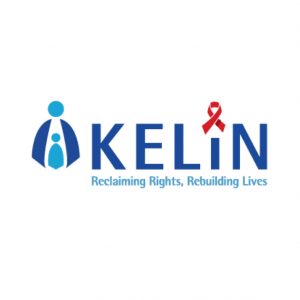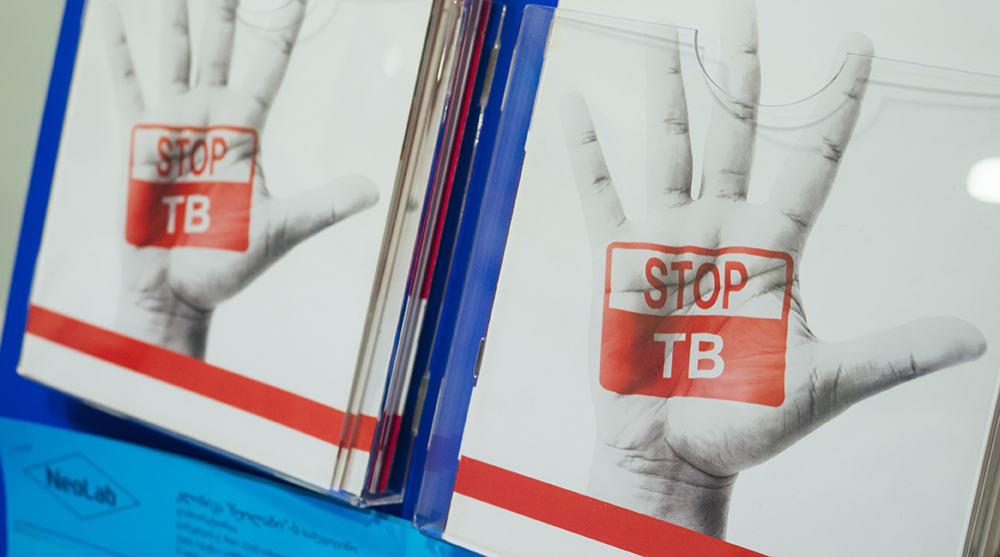
KELIN, Kenya
An interview with Timothy Wafula and Lisa Owino from the Kenya Legal & Ethical Issues Network on HIV and AIDS (KELIN).
Our campaign partner, KELIN, has helped transform how people living with TB are treated. Their work set a precedent, ending the de facto criminalization of patients and the government has adopted more human-rights friendly policies as a result.
Based on what they have learned tackling the world’s biggest infectious disease killer, KELIN hopes political leaders will look to the TB response during the COVID-19 crisis, to ensure isolation policies adopt rights-based approaches.

The TB community stands in solidarity with the people affected by COVID-19. This World TB Day we support the fight against the new pandemic, share our lessons, experiences and tools so that united we can defeat it. Learn more at the Stop TB Partnership website. www.stoptb.org
Globally, TB claims over 4,000 lives each day. Kenya is considered a ‘high burden country’ with more than 150,000 people requiring care each year. Back in 2010, two of the country’s patients were sentenced to eight months in prison. Their crime? Not adhering to TB treatment. KELIN stepped in and successfully challenged the sentence.
“These two men were not the only people that this was happening to,” says Timothy Wafula, the Health Governance Programme Manager at KELIN. “People with TB were being routinely imprisoned. It was such standard practice that even health workers would say, ‘take your medication or you’ll go to jail!’.”
“Overnight this judgement set a precedent. The judge ruled that there was an absence of a crime. There was no medical or legal grounds to isolate people in this way.”
“We know it may still be happening in some towns,” continues Wafula, “in places where they may not be aware that the law does not stand. Our training is reaching the general public as well as frontline staff and the judiciary, so thankfully it’s much rarer now.”
“Prisoners are in a more vulnerable situation,” says Lisa Owino, who works in the Health Governance Programme at KELIN. “There can be hundreds of people lying side by side in poorly-ventilated rooms. So not only were these rulings a breach of human rights, but it’s also ineffective in reducing the spread of TB.”
RISK FACTORS
“Other people who are more vulnerable, also due to the context in which they live, include people living in informal settlements which are over-crowded. The homes are packed so closely to one another and not every home has proper ventilation. Additionally, a lower socio-economic status makes people more vulnerable to malnutrition which can result in reduced immunity, making people living in poverty more pre-disposed. We are concerned that the same factors that increase someone’s risk of contracting TB also increase their risk from COVID-19.”
“Although scientific data doesn’t yet exist we are definitely worried that people already living with TB may have poorer treatment outcomes if they contract COVID-19. All people with TB should be considered a vulnerable and high-risk population, as should all people living in informal settlements, with or without TB.”
To date (23 March) 16 cases have been confirmed in Kenya. As the numbers inevitably increase then undoubtedly social distancing and self-isolation will be recommended. “In low-income areas where a huge population lives, this will not be possible. The government will need to consider how this is managed,” says Owino.
“We urge that any new isolation measures are effective and respect patients’ rights. In the case of pandemics it’s very easy for governments to focus on control again and the rights of people can get lost.”
COSTS OF THE TB EPIDEMIC
“Amid the new crisis we continue to deal with the pre-existing one,” says Wafula. “We will continue to support people to test and treat for TB and remove barriers that prevent people from completing their course of treatment and being cured.”

“Although TB treatment is free of charge there are other costs. Transport being a key one. Many people struggle with the frequent costs and inconvenience of getting to a clinic. When people in this situation have been prosecuted for not adhering to medicines, they are essentially criminalizing poverty.”
“Some people do stop or have treatment gaps, which is dangerous. The side-effects of older, commonly prescribed drugs can get in the way of people adhering to treatment. If we could access more optimal treatment affordably it would help to increase sucess rates.”
“One of the preferred treatments for drug-resistant TB, including extensively drug-resistant TB (XDR-TB) are combinations using bedaquiline (BDQ). BDQ is listed on the WHO’s List of Essential Medicines. It has patents running until 2027 and so it is very expensive.
BDQ was procured as a result of the advocacy efforts of KELIN and others, but it is a ‘controlled drug’. It means it is not stocked in any health facilities. Instead it is centrally held and released only when facilities make a special request in complex cases,” explains Wafula.
“A person with TB in Makueni County died because of the time it took from the request for the medicine (BDQ) being made to it being delivered from down the road in Nairobi. Alex Kiuvu died from over-pricing and bureaucracy. He died while the medicine he needed gathered dust.”
Alex Kiuvu died while the medicine he needed gathered dust.
“We need to continue to push the government to take measures to allow for competition and competitive pricing to meet the demand for optimal TB treatment in the country. Kenya’s National Tuberculosis, Leprosy and Lung Disease Program estimates that 38% of cases are not diagnosed or treated. That’s too many people whose lives are at risk,” says Wafula. “We need to step up the response and ensure that people are treated holistically – that their health, housing, financial and nutritional needs are all met – in order for people to prevent or recover from all infectious diseases and live healthy lives.”
ABOUT KELIN
The Kenya Legal and Ethical Issues Network on HIV and AIDS (KELIN) is an organization that advocates for the right to health.
With regards to TB, KELIN works to ensure that a human rights-based approach is integrated into policies, laws, and regulations. It does this through interrogating current laws and policies on TB, examining gaps and making recommendations, which the government has been acting upon.
WHAT IS A ‘HUMAN RIGHTS-BASED APPROACH TO TB’?
A human rights-based approach to TB articulates and upholds the rights of people affected by TB, including the rights to life, health, non-discrimination, privacy, informed consent, housing, food, and water.
The approach focuses on the social and economic determinants of the disease, addressing stigma, discrimination, and environmental conditions. It articulates the domestic and international legal obligations of governments and non-state actors to ensure proper quality testing and treatment for TB is available and accessible without discrimination.
The approach also aims to create an enabling legal environment for the research and development of new, more effective TB drugs and diagnostics, and to lower the prices of existing drugs, including new medicines for multidrug-resistant TB, and advanced diagnostics.
RELEVANT RESOURCES
KELIN, with support from the Stop TB Partnership, has produced the following three assessments which are changing the approach to TB in Kenya. They could serve as a useful reference for organizations wanting to replicate a similar approach in other countries.
- The TB Legal Environment Assessment was the first ever to be conducted globally. It identifies laws, policies and practices that pose barriers to accessing TB services in Kenya and recommends practical action points.
- The TB Data Assessment in Key, Vulnerable and Underserved Populations established that there were no population estimates for people most vulnerable to TB in Kenya. It recommended the need for comprehensive data, disaggregated by gender, age, specific TB risk drivers and barriers to access to services.
- The TB Gender Assessment in Kenya. (LINK TO FOLLOW). This research identified gender-related barriers to access to TB services including gender norms, social and cultural barriers, stigma and discrimination, literacy levels, and a lack of financial control or independence, among other factors.
All assessments make recommendations for addressing the issues and barriers to equitable and effective TB services, including ensuring meaningful participation of those most affected in designing and implementing policies and procedures.




